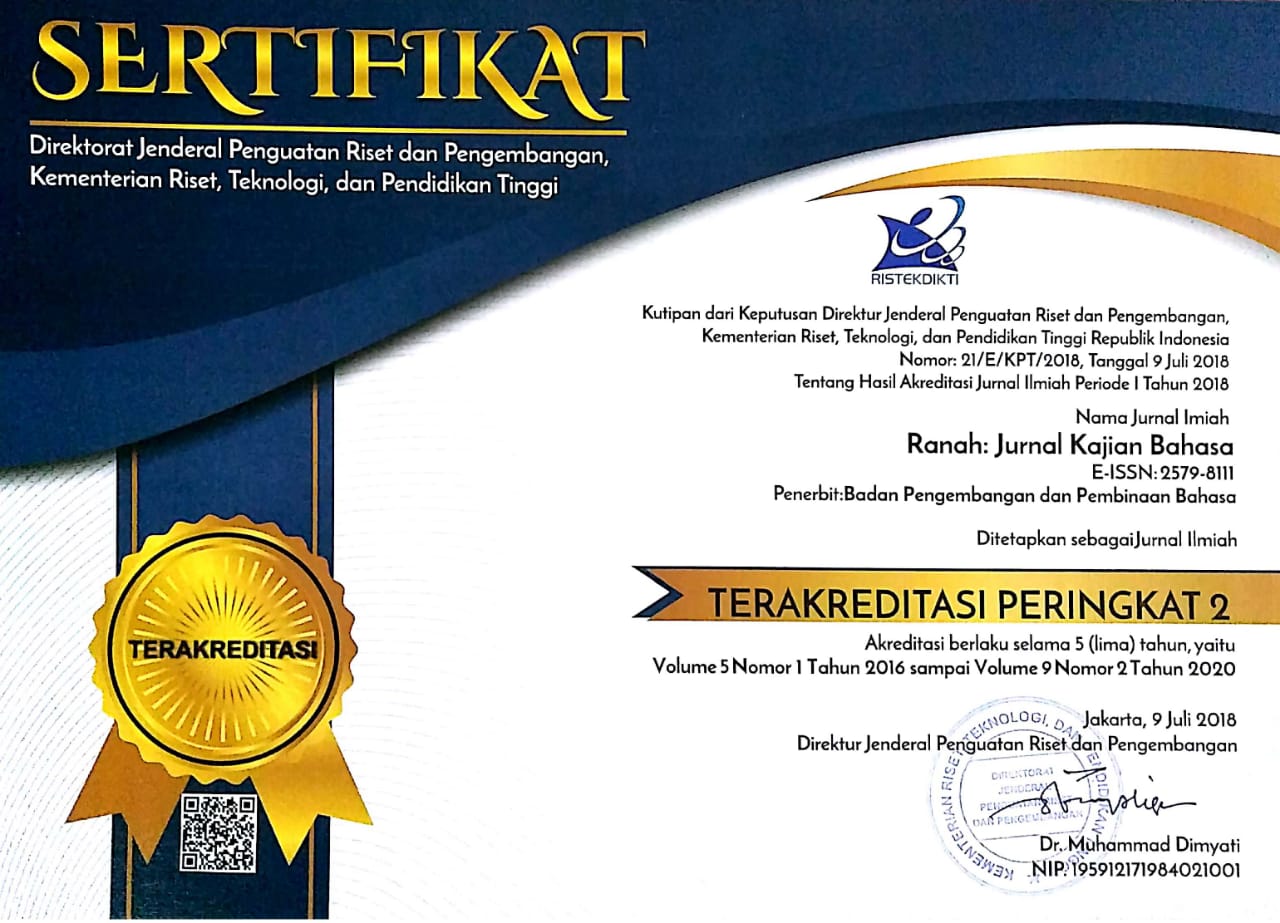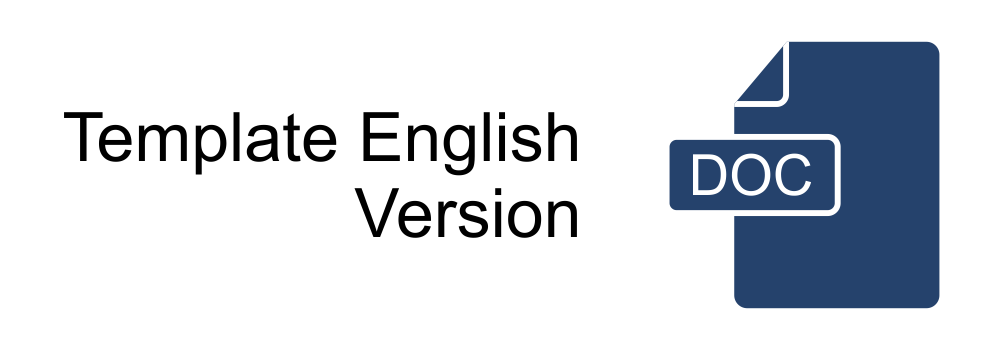PENGARUH KEMAMPUAN BERPIKIR KRITIS, PEMAHAMAN BACAAN, DAN PENGATURAN DIRI TERHADAP KEMAMPUAN MENULIS ILMIAH (Studi Analisis Jalur Mahasiswa Institut Pertanian Bogor)
Abstract
The objective of the research is to study the effects of critical thinking, reading comprehension, and self-regulation on scientific writing skill. The research was conducted at the Educational Program of General Competence, Bogor Agricultural University. The research method is path analysis using 4 variables. The sample is 100 students. They are semester I of academic year of 2015/2016, the researcher uses stratification sampling technique. The instruments of this research are paper of scientific writing skill, questionnaire of self-regulation, test of critical thinking skill and reading comprehension. The data analysis uses path analysis. The research findings are: 1) There is a direct influence of the critical thinking skills on scientific writing skills at 0,594, 2) there is a direct influence of reading comprehension on the ability to write a scientific tex at, 0,248, 3) there is significant indirect self-regulating ability of scientific writing through reading comprehension. However, there is an indirect effect on the ability of self regulation of scientific writing through reading comprehenship of 0,117 4) there is a direct effect of critical thinking skills on reading comprehension, at 0,389, 5) there is a self-regulating direct influence on reading comprehension at 0,471, and 6) there is a direct effect of critical thinking skills on self-regulation at 0,448.There is no direct effect on the ability of critical thinking skills of scientific writing through reading comprehension at 0,096 and by combining self regulation and reading comprehenshion of 0,052.
ABSTRAK
Objek penelitian ini adalah pengaruh kemampuan berpikir kritis, pemahaman bacaan, dan pengaturan diri terhadap kemampuan menulis ilmiah. Penelitian ini dilaksanakan pada Program Pendidikan Kompetensi Umum Institut Pertanian Bogor. Metode penelitian adalah analisis jalur. Jumlah responden 100 mahasiswa, tersebar pada 32 kelas responsi dengan jumlah populasi 1781 pada semester I tahun ajaran 2015/2016. Teknik pengambilan sampel adalah teknik acak. Instrumen penelitian adalah makalah untuk variabel kemampuan menulis ilmiah, kuesioner untuk variabel pengaturan diri, tes objektif untuk variabel kemampuan berpikir kritis dan variabel pemahaman bacaan. Tujuan penelitian adalah untuk mengetahui seberapa besar pengaruh variabel bebas terhadap variabel terikat. Hasil penelitian adalah (1) ada pengaruh langsung positif kemampuan berpikir kritis terhadap kemampuan menulis ilmiah sebesar 0,594, (2) ada pengaruh langsung positif pemahaman bacaan terhadap kemampuan menulis ilmiah sebesar 0,248, (3) pengaturan diri tidak berpengaruh secara signifikan terhadap kemampuan menulis ilmiah, namun ada pengaruh tidak langsung pengaturan diri terhadap kemampuan menulis ilmiah melalui pemahaman bacaan sebesar 0,117, (4) ada pengaruh langsung positif kemampuan berpikir kritis terhadap pemahaman bacaan sebesar 0,389, (5) ada pengaruh langsung positif pengaturan diri terhadap pemahaman bacaan sebesar 0,471, dan (6) ada pengaruh langsung positif kemampuan berpikir kritis terhadap pengaturan diri sebesar 0,448. Ada pengaruh tidak langsung kemampuan berpikir kritis terhadap kemampuan menulis ilmiah melalui pemahaman bacaan sebesar 0,096 serta melalui kombinasi pengaturan diri dan pemahaman bacaan sebesar 0.052.
Keywords
Full Text:
PDFReferences
Bailey, Stephen. (2006). Academic Writing. A Handbook for International Students. New York: Routledge.
Bailin, Sharon. dkk. (1999). Conceptualizing critical thinking. Curriculum studies, Journal International,vol. 31, no. 3, 285-302.
Bandura, Albert. (1977). Social Learning Theory. Englewood Cliffs: Prentice-Hall.
Boeriswati, Endry. “The Model of Speaking in Teaching Indonesian to Foreign Speakers Based on Self-Regulated Learning and Anxiety Reduction Approaches State University of Jakarta”, Jakarta, Indonesia.
Christopher A. Wolters. (2014). Assessing Academic Self-regulated Learning. Paper prepared for the Conference onIndicators of Positive Development: Definitions, Measures, and Prospective Validity. University of Houston. Cromley,
Jennifer. (2000). Learning to Think, Learning to Learn. Washington, D.C. National Institute for Literacy.
Harrison, Colin. (2004). Understanding Reading Development. London: SAGE Publication.
Johnson, Daniel. (2008). Thinking Critically about Assessing Online Learning. The International Journal of Learning. Volume 14, Number 12, Johnson, Daniel. Melbourne, Australia: Common Ground Publishing Pty Ltd.
Lampert, Nancy. (2011). Study of an after-school art programme and critical thinkingInternational Journal of Education through Art Volume 7 Number 1.
Lawrence, Mary. (1975). Writing as a Thingking Process. America: The University of Michigan.
Nation, I.S.P. (2009). Teaching ESL/EFL Reading and Writing. New York: Routledge.
Ormord, Jeanne Ellis. (2008). Psikologi Pendidikan. Membantu Siswa Tumbuh dan Berkembang. Jakarta: Erlangga.
Ormord, Jeanne Ellis. (2008). Psikologi Pendidikan. Membantu Siswa Tumbuh dan Berkembang. Jakarta: Erlangga.
Osborne, Randall E. (2007). Teaching Interpersonal and Critical Thinking Skills in an Online Course a Journal of Scholarly Teaching. Texas State University-San Marcos.
Paul, Richard W dan Elder, Linda. (2002). Critical Thinking: Tools for Taking Charge of Your Professional and Personal Life. Amerika: Financial Times Prentice Hall.
Smith, Frank. (2004). Understanding Reading. A Psycholinguistic Analysis of Reading and Learning to Read. London: Lawrence Erlbaum Associates.
Thomas, Theda. (2011). Developing First Year Students Critical Thining Skils. A Journal Asian Social Science Vol.7, No. 4, April. Faculty of Arts and Sciences, Australian Catholic University, Melbourne, Austria.
DOI: https://doi.org/10.26499/rnh.v5i2.146
Refbacks
- There are currently no refbacks.








